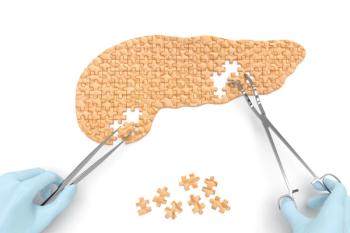
Equitable Health Care Access Could Reduce Disparities in Advanced Prostate Cancer
Black patients experience worse survival outcomes and exhibit more aggressive forms of the disease compared with White patients.
Findings from a study published in JAMA Network Open suggest that more equitable health care access can diminish health disparities related to race and social determinants of health among patients with advanced forms of prostate cancer.1
Previous studies have shed light on how impactful race and social variables have been on the prognosis and survival of patients with prostate cancer, with Black patients experiencing worse survival outcomes and exhibiting more aggressive forms of the disease compared with White patients. Researchers theorize that equal access to health resources and treatments are barriers that perpetuate these health disparities.
In a phase II trial involving patients with metastatic castration-resistant cancer (mCRPC) receiving abiraterone acetate, Black and White patients presented similar prognostic outcomes. Considering these findings, the authors of the current study performed a secondary analysis of the phase III SWOG 1216 study, which investigated the efficacy of ADT with orteronel (a nonsteroidal CYP17A1 inhibitor) for patients across race. The authors hypothesized that equitable care access in a clinical trial setting may mitigate historical outcome disparities between Black and White patients.
Patient-level data were gathered from SWOG 1216, a randomized, National Cancer Institute-funded clinical trial. The authors included patients with new diagnoses of metastatic castration-sensitive prostate cancer (mCSPC) who enrolled between March 1, 2023 and July 15, 2017. Patients were separated into an experimental group (which received orteronel) and a control group (who received bicalutamide). The main end point was overall survival (OS), and secondary end points included progression-free survival (PFS) and response rates at 7 months based on prostate-specific antigen levels.
A total of 1313 patients were enrolled in this study, 135 of whom were Black (10.3%) and 1077 White (82%). Extensive levels of disease were present in 65 Black patients (48.1%) and 524 White patients (48.7%), respectively (P = .98). The median follow-up time was 4.9 years.
The results did not show statistically significant differences between treatment outcomes across race or stages of disease. In Black patients, median OS was 5.5 years (95% CI, 4.8 to not reached). For White patients, median OS was 6.3 years (95% CI, 5.7 to not reached). As for the radiographic PFS and OS between Black and White patients, there were no statistically significant differences: 16.6 vs 16.8 months and 35.9 vs. 35.7 months, respectively. These findings support the hypothesis regarding equitable health access and patient outcomes.
Among the limitations listed in the study was the generalizability of the findings to the clinical setting, as orteronel is not used in current practice. Additionally, the small sample size of Black patients may have been insufficient for conducting proper subgroup analyses. Despite these limitations, the trial offers insight into what the results of equitable health access could potentially look like.
The researchers concluded by reemphasizing that their results “validate the previous population-based research findings indicating that Black patients with advanced prostate cancer achieve comparable outcomes when health care access is equalized and treatment is standardized.” Their work here was particularly important because, in previous studies and trials, Black populations have been severely underrepresented, and data on the safety and efficacy of new treatments in Black patients has been harder to come by.
Reference
1. Sayegh N, Swami U, Jo Y, et al. Race and treatment outcomes in patients with metastatic castration-sensitive prostate cancer: A secondary analysis of the SWOG 1216 phase 3 trial. JAMA Netw Open. Published online August 1, 2023;6(8):e2326546. doi:10.1001/jamanetworkopen.2023.26546
Newsletter
Pharmacy practice is always changing. Stay ahead of the curve with the Drug Topics newsletter and get the latest drug information, industry trends, and patient care tips.























